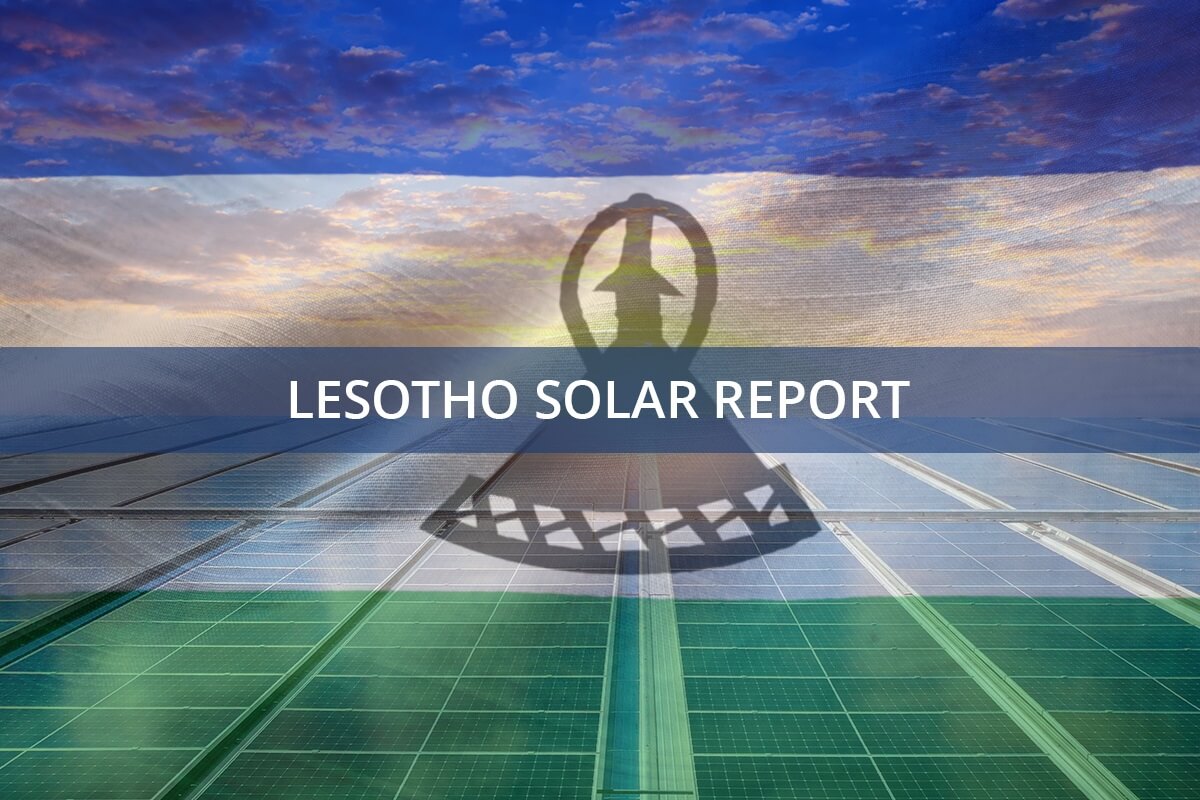Lesotho is set to boost its renewable energy capacity with the upcoming Lesotho Solar Power Station, a 70MW solar power project located in the Berea District. This initiative is part of Lesotho’s commitment to increasing its renewable energy sources and enhancing energy security.
Lesotho Solar Power Station Project Overview
The Lesotho Solar Power Station is a 70MW solar power project being developed in the Berea District by the OnePower Lesotho Consortium. The project is expected to significantly enhance Lesotho’s renewable energy capacity by feeding clean energy into the national grid.
The government of Lesotho has shown strong support for the project, which is part of a broader effort to increase the country’s renewable energy sources and improve energy security. The project is a key component of Lesotho’s strategy to diversify its energy mix and reduce reliance on imported electricity from South Africa.
The Lesotho Solar Power Station is the second solar power project to be developed in the country, following the 30MW Lesotho Electricity Generation Company (LEG) Solar Power Station in the Mafeteng District. The LEG Solar Power Station was the first independent power producer (IPP) project in Lesotho and is expected to begin operations by the end of 2024.
Lesotho Solar Power Project Highlights and Development
The Lesotho Solar Power Station is expected to be operational by May 2025. The project is being developed by the OnePower Lesotho Consortium, which is a joint venture between OnePower Lesotho, an independent power producer, and the Lesotho Electricity Company (LEC).
The consortium was awarded the project through a competitive bidding process conducted by the Millennium Challenge Account-Lesotho (MCA-Lesotho), a government agency responsible for implementing the Millennium Challenge Corporation (MCC) compact.
The project will be built in the Berea District, which is located in the northern part of Lesotho. The site was chosen due to its high solar irradiation levels and proximity to the national grid. The project will be connected to the national grid through a 132kV transmission line.
The Lesotho Solar Power Station is expected to generate 145,000 megawatt-hours (MWh) of electricity annually, which will be enough to power approximately 45,000 households. The project will contribute significantly to Lesotho’s renewable energy capacity and help reduce the country’s reliance on imported electricity.
Lesotho Solar Power and Its Impact on the Energy Sector
The Lesotho Solar Power Station is expected to have a significant impact on Lesotho’s energy sector. The project will help reduce the country’s reliance on imported electricity from South Africa, which currently accounts for more than 60% of Lesotho’s electricity supply.
The project will also help diversify Lesotho’s energy mix, which is currently dominated by hydroelectric power. Lesotho’s reliance on hydropower makes the country vulnerable to climate change and fluctuations in water levels. The addition of solar power will provide a more stable and reliable source of electricity.
In addition to its environmental benefits, the Lesotho Solar Power Station is also expected to create jobs and stimulate economic development in the Berea District. The project is expected to create approximately 200 jobs during the construction phase and 20 permanent jobs during the operation phase.
Government Support for Lesotho Solar Power Initiatives
The Lesotho government has shown strong support for the Lesotho Solar Power Station. The project is part of the government’s broader strategy to increase the country’s renewable energy capacity and improve energy security.
In 2021, the Lesotho government signed a 25-year power purchase agreement (PPA) with the OnePower Lesotho Consortium, which will ensure that the electricity generated by the project is sold to the national grid at a fixed price.
The government has also received support from international partners, including the Millennium Challenge Corporation (MCC), which provided $42 million in funding for the project.
The Lesotho Solar Power Station is a key part of Lesotho’s efforts to increase its renewable energy capacity and reduce its reliance on imported electricity. The project, which is scheduled to be completed by May 2025, will significantly enhance Lesotho’s energy mix and provide a long-term, stable source of electricity for the country.

